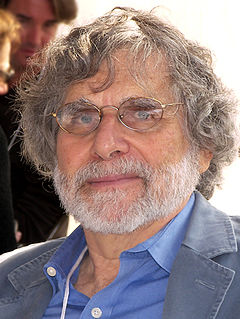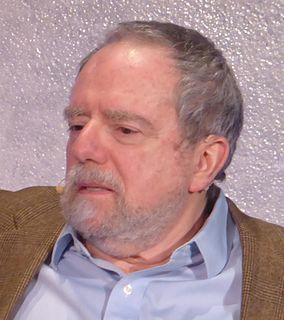A Quote by Cynthia Ozick
Among contemporaries, I hugely admire Alice Munro, our Chekhov, Saul Bellow, Philip Roth, and John Updike, American masters all. I also believe that the voice of Gordon Lish is astoundingly original and sorrowful.
Related Quotes
At one point I would read nothing that was not by the great American Jews - Saul Bellow, Philip Roth - which had a disastrous effect of making me think I needed to write the next great Jewish American novel. As a ginger-haired child in the West of Ireland, that didn't work out very well, as you can imagine.
The last publicized center of American writing was Manhattan. Its writers became known as the New York Intellectuals. With important connections to publishing, and universities, with access to the major book reviews, they were able to pose as the vanguard of American culture when they were so obsessed with the two Joes--McCarthy and Stalin--that they were to produce only two artists, Saul Bellow and Philip Roth, who left town.
[Kurt] Vonnegut was a writer whose great gift was that he always seemed to be talking directly to you. He wasn't writing, he wasn't showing off, he was just telling you, nobody else, what it was like, what it was all about. That intimacy made him beloved. We can admire the art of John Updike or Philip Roth, but we love Vonnegut.
America is the big subject of the second half of the 20th century, tackled in one form or another by all the great American male writers. You could make a case for saying that it was the only game in town - from Bellow to Roth to Updike to Richard Ford - America was more or less explicitly the leitmotif.
Roth Unbound is filled with intelligent readings and smart judgments. Because of the author's sympathy and sharp mind, it offers real insight into the creative process itself, and into Philip Roth's high calling as a great American artist. The book is, in some ways, a radical rereading of Roth's life and his work. It is impossible, by the end, not to feel a tender admiration for Roth as a novelist and indeed for Claudia Roth Pierpont as an empathetic and brilliant critic.
Sad to think that we won't have any new stories from John Updike, one of the last century's masters. But so many here in the two volumes of his collected stories, 186 by my count, stories to read, reread, savor over the course of a cold season. Updike's genius in the short form spills out of these many, many pages.







































